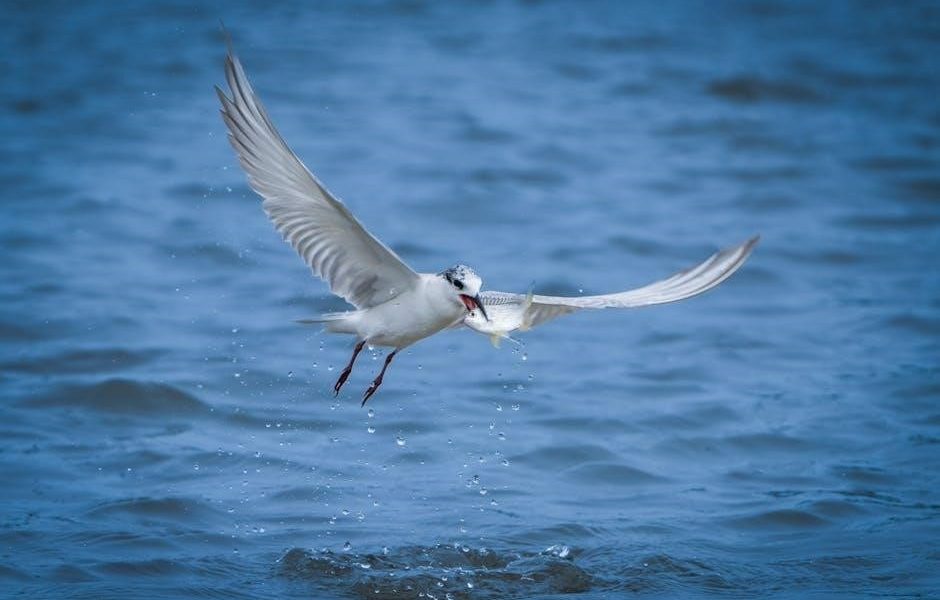
maine fly fishing guides
Maine offers exceptional fly fishing experiences with its pristine rivers, lakes, and diverse fish species, including brook trout. Guides provide expert knowledge, ensuring a memorable and productive adventure.
Why Hire a Guide?
Hiring a guide enhances your Maine fly fishing experience by providing access to remote locations, expert techniques, and localized knowledge. Guides ensure safety and offer personalized instruction, helping anglers of all skill levels succeed. They often specialize in specific species like brook trout and can recommend optimal gear and flies. Additionally, guides manage logistics, allowing you to focus on fishing while enjoying the scenic beauty of Maine’s waters. Their expertise maximizes your chances of a successful and memorable trip.
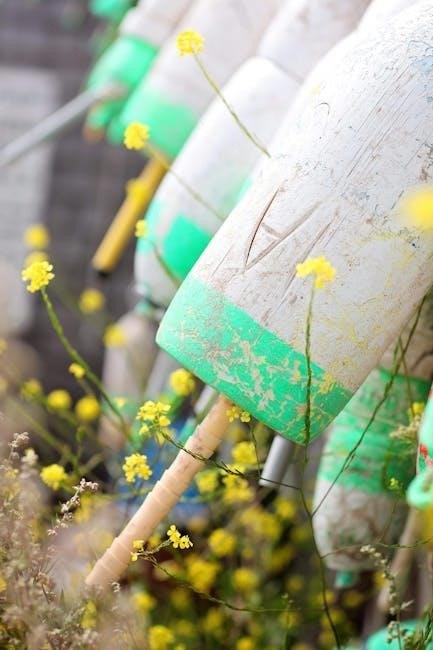
Top-Rated Fly Fishing Guides in Maine
Maine’s top guides are renowned for their expertise and personalized service, offering unforgettable fly fishing experiences on the state’s iconic rivers and streams year-round.
Notable Guide Services
Maine’s guide services are highly regarded for their professionalism and deep local knowledge; Many offer customized trips, from targeting brook trout in remote streams to exploring vast lakes. These guides provide expert instruction, ensuring anglers of all skill levels can enjoy Maine’s diverse fisheries. Their services often include equipment rentals, making it easy for visitors to experience the state’s renowned fly fishing without needing to bring their own gear. This ensures a seamless and enjoyable adventure for everyone.
Expertise and Specializations
Maine fly fishing guides specialize in various techniques, including nymphing, dry fly fishing, and streamer tactics. Many focus on specific species like brook trout, salmon, or striped bass. Their expertise covers understanding seasonal fish behavior, optimal fly selection, and navigating Maine’s unique waterways. Some guides also offer custom rod-building services, creating tailored equipment for anglers seeking a personalized experience. This specialization ensures anglers receive targeted guidance, enhancing their chances of a successful and memorable fishing trip in Maine’s diverse waters.
Best Fishing Locations in Maine
Maine’s diverse waters offer exceptional fly fishing spots, including the Kennebec River, Penobscot River, and Belgrade Lakes. Guides often recommend these locations for their abundant fish populations and scenic beauty.
Rivers and Streams
Maine’s rivers and streams are iconic for fly fishing, offering crystal-clear waters and abundant trout populations. The Kennebec and Penobscot rivers are favorites, known for their strong currents and diverse insect hatches. Guides often recommend these spots for targeting brook trout, while smaller streams provide secluded opportunities for anglers seeking solitude. Timing is key, as spring and fall offer prime conditions for nymphing and dry fly techniques. These waterways are a testament to Maine’s rich fly fishing heritage and natural beauty.
Lakes and Ponds
Maine’s lakes and ponds offer serene and productive fly fishing environments, with brook trout being a popular target. Guides often recommend spots like Belgrade Lakes and Moosehead Lake for their clarity and abundant fish populations. Early morning and evening sessions are ideal for casting dry flies or nymphs. These still waters provide a peaceful setting, allowing anglers to connect with nature while honing their skills. Experienced guides can help navigate these areas, ensuring a successful and enjoyable fly fishing experience in Maine’s picturesque lakes and ponds.
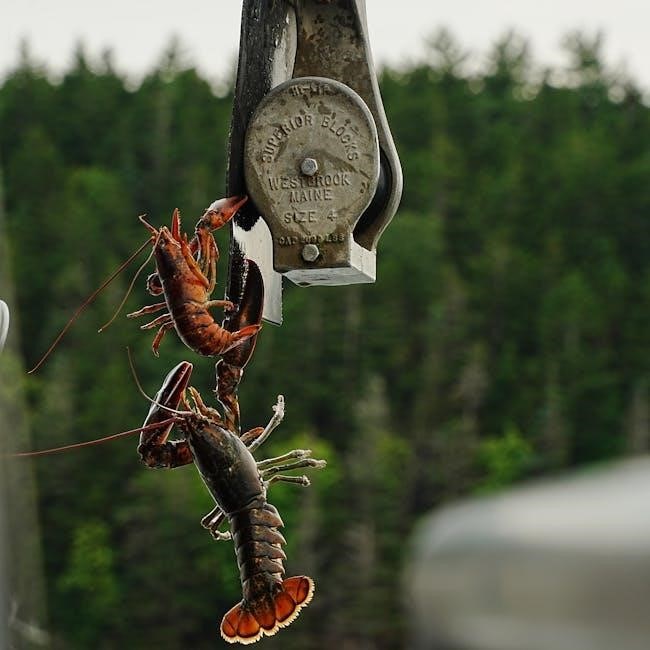
Fishing Seasons in Maine
Maine’s fishing seasons vary, with spring and fall offering prime conditions for brook trout. Local guides provide insights, optimizing trips during these peak periods for success.
Prime Times for Fly Fishing
Peak fly fishing in Maine occurs during spring (April–June) and fall (September–October). These seasons offer ideal water temperatures and abundant insect hatches. Local guides often recommend early morning and late evening for active bites. During these periods, brook trout are more aggressive, making nymphing and dry fly techniques highly effective. Guides also emphasize the importance of adapting to weather conditions, ensuring anglers make the most of their time on the water. Proper timing and expert guidance enhance the overall fishing experience in Maine’s pristine waters.
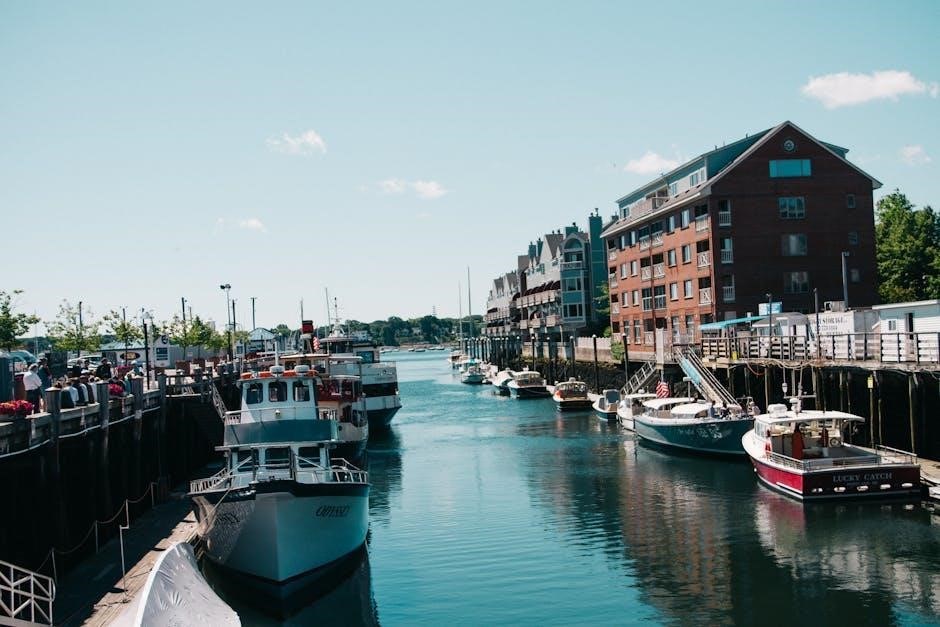
Essential Gear for Fly Fishing
Essential gear includes a fly rod, reel, line, and leader. Waders and a fishing vest enhance mobility and organization while on the water.
Fly Rods and Reels
Fly rods and reels are critical for precise casting and control. Guides recommend high-quality, lightweight graphite rods paired with durable reels to handle Maine’s strong fish species effectively.
Lines and Leaders
Choosing the right fly line and leader is essential for success in Maine’s waters. Weight-forward lines are ideal for casting in various conditions, while tapered leaders (9-12 feet) with 3X to 5X tippet provide strength and precision. Guides often recommend monofilament or fluorocarbon leaders for durability and invisibility. Properly matching the line weight to the rod ensures accurate casts, and leaders should be sturdy enough to handle Maine’s larger trout. A well-set-up line and leader system enhances fly presentation and fighting capabilities, making guided advice invaluable for optimizing your gear.
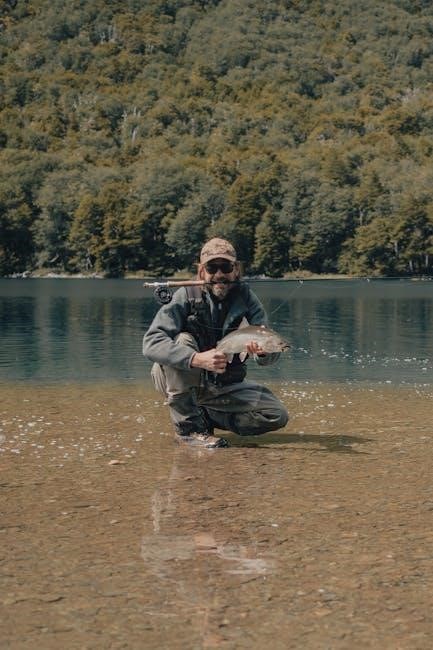
Popular Fly Fishing Techniques
Nymphing and dry fly fishing are prime methods in Maine, with guides often emphasizing strategy and presentation to maximize success in the state’s renowned trout waters.
Nymphing
Nymphing is a highly effective technique in Maine’s cold-water streams and rivers. By mimicking the natural drift of insect larvae, anglers can target trout in deeper pools and runs. Guides often recommend using weighted nymph patterns to reach fish feeding near the bottom. The technique requires precise presentation and a steady drift, making it a favorite among experienced fly fishers seeking brook trout in Maine’s pristine waters.
Dry Fly Fishing
Dry fly fishing is a thrilling method in Maine, where anglers cast floating flies to imitate surface insects. The state’s clear rivers and lakes provide ideal conditions for this technique, with brook trout often rising aggressively to surface patterns. Guides expertly identify hatches and recommend effective fly selections, enhancing the experience for both novices and seasoned anglers. This visually exciting approach allows for direct strikes, making it a popular choice for those seeking dynamic fly fishing adventures in Maine’s pristine waters.

Regulations and Licensing
Fly fishing in Maine requires adherence to state regulations, including proper licensing and catch limits. Guides ensure compliance, promoting sustainable fishing practices and preserving Maine’s aquatic resources.
Licensing Requirements
Fly fishing in Maine requires a valid state-issued fishing license, available to both residents and non-residents. Licenses can be purchased online or through local outfitters. Anglers must carry their license while fishing and adhere to seasonal restrictions. Guides often assist clients with licensing processes, ensuring compliance with state regulations. Additionally, special permits may be needed for specific fish species or locations, such as the Resident Landlocked Salmon License for certain waters. Always verify requirements before your trip to avoid penalties.
Catch and Release Limits
Maine enforces specific catch and release limits to protect fish populations and habitats. Anglers must adhere to daily bag limits and minimum size restrictions for species like trout and salmon. Guides often emphasize catch-and-release practices to promote conservation. Certain waters may have stricter regulations, such as gear restrictions or closed seasons. Always check local regulations before your trip to ensure compliance and help preserve Maine’s fisheries for future generations.
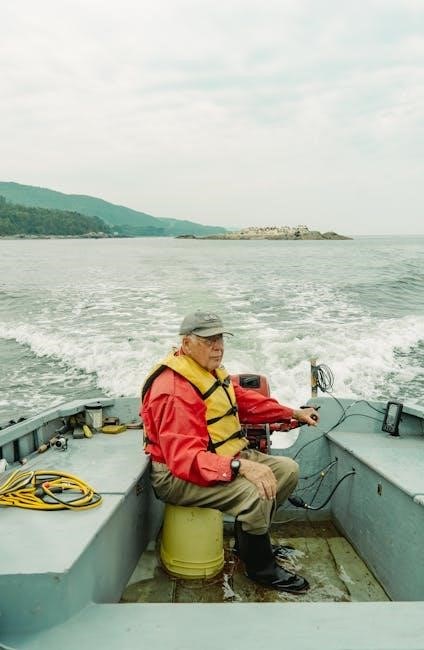
Safety Guidelines
Always wear a properly fitted life jacket and use a wading staff for stability in currents. Be aware of changing weather conditions and respect private property rights;
Wading and River Safety
Wading in Maine’s rivers requires caution due to slippery rocks and strong currents. Guides emphasize wearing sturdy wading boots with good traction and using a wading staff for balance. Anglers should test each step carefully, especially in fast-moving water. Knowing where to stand and how to move without disturbing the environment is crucial. Always stay alert to changing water levels and weather conditions, which can affect river safety. Proper preparation ensures a enjoyable and secure fishing experience.
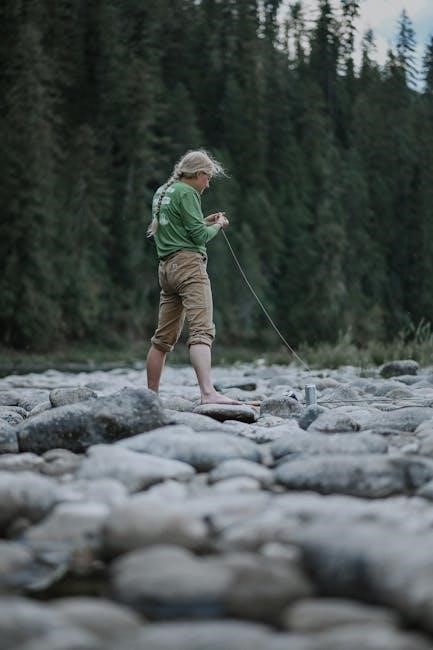
Choosing the Right Guide
When selecting a guide, prioritize experience, local knowledge, and a focus on teaching proper techniques and safety. Check testimonials and reviews to ensure reliability and expertise.
What to Look For
When selecting a guide, prioritize experience, local knowledge, and a focus on teaching proper techniques and safety. Check testimonials and reviews to ensure reliability and expertise. Look for guides who cater to both beginners and experienced anglers, offering customized trips. Ensure they provide high-quality equipment and emphasize environmental conservation. Compatibility with your fishing goals and style is crucial. A reputable guide will also discuss river conditions, weather, and fish behavior to maximize your fishing success. Prioritize guides who balance instruction with hands-on fishing time.
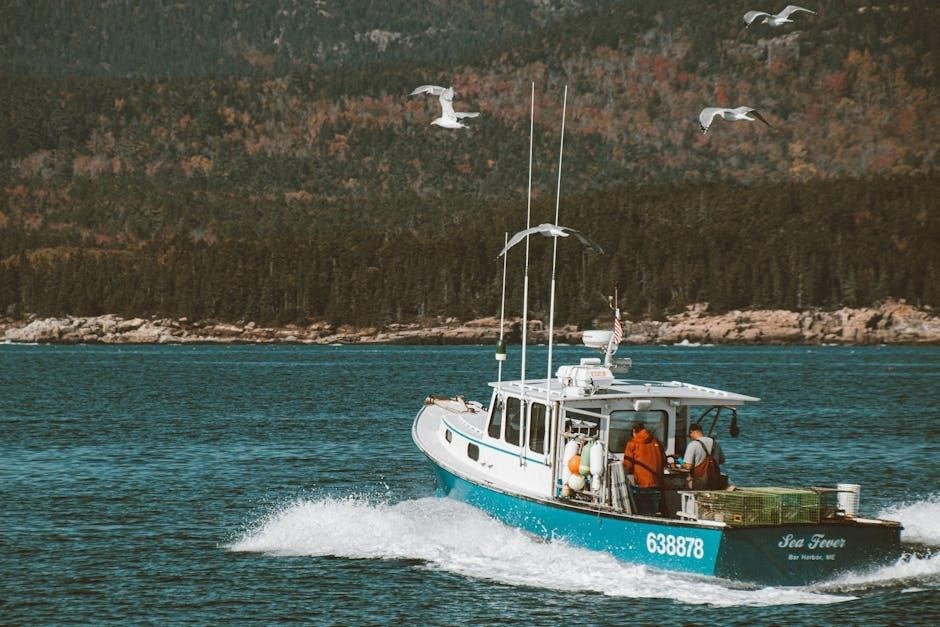
Conservation Efforts
Maine fly fishing guides actively support conservation by promoting sustainable practices and protecting local ecosystems. Their involvement ensures the preservation of fish populations and habitats for future generations.
Guide Involvement in Conservation
Maine fly fishing guides are deeply committed to conservation efforts. Many guides collaborate with local organizations to protect fish habitats and promote sustainable fishing practices. They often advocate for catch-and-release fishing to maintain healthy trout populations. Additionally, guides educate clients on environmental stewardship, such as minimizing gear impact and respecting wildlife. Their involvement in conservation ensures the long-term health of Maine’s ecosystems, benefiting both anglers and the environment. These efforts highlight the guides’ dedication to preserving Maine’s natural beauty for future generations.
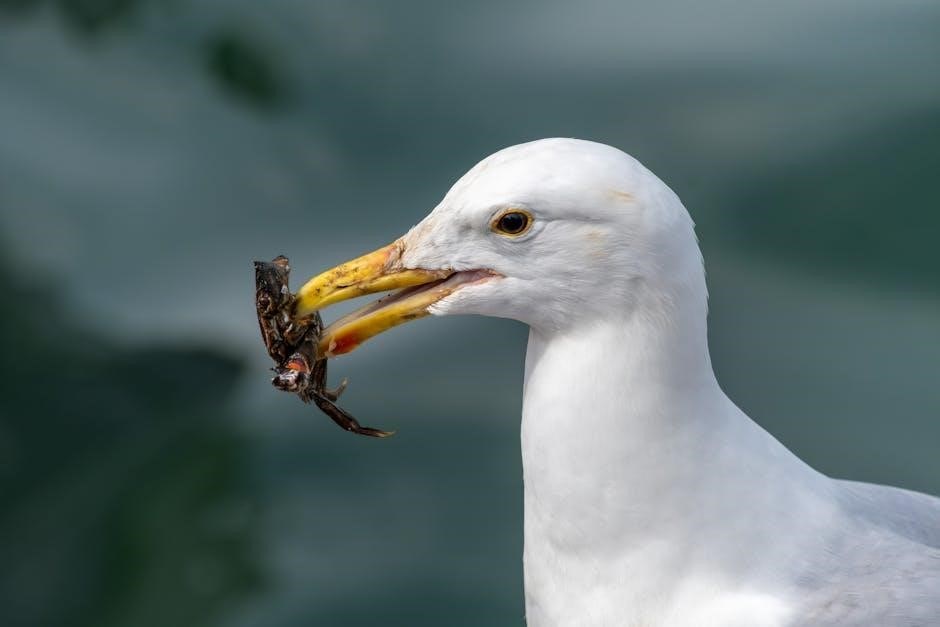
Planning Your Trip
Plan your Maine fly fishing trip by booking reputable guides early, checking river levels, and preparing essential gear. Research seasons and local regulations to ensure success.
Booking and Preparing
Booking a guide early ensures availability, especially during peak seasons. Research and choose guides with excellent reviews and local expertise. Prepare by checking river levels, weather, and gear requirements. Pack essential items like waders, flies, and sunscreen. Familiarize yourself with local regulations and fishing techniques beforehand. Discuss your expectations with the guide to tailor the experience. Ensure all safety gear is in order, and plan for variable weather conditions. Proper preparation enhances your fly fishing adventure in Maine’s stunning waters.
Maine fly fishing offers unforgettable experiences with its diverse waters and expert guides. With proper planning, gear, and adherence to regulations, anglers can enjoy the state’s natural beauty and abundant fish populations. Guides provide invaluable insights, enhancing both novice and experienced anglers’ trips. Conservation efforts and sustainable practices ensure future generations can enjoy Maine’s fly fishing heritage. Whether targeting brook trout or exploring remote locations, Maine remains a premier destination for fly fishing enthusiasts seeking adventure and tranquility.
Related posts:
Archives
- February 2026
- January 2026
- December 2025
- November 2025
- October 2025
- September 2025
- August 2025
- July 2025
- June 2025
- May 2025
- April 2025
- March 2025
- February 2025
- January 2025
- December 2024
- November 2024
- October 2024
- September 2024
- August 2024
- July 2024
- June 2024
- May 2024
- April 2024
- March 2024
- February 2024
- January 2024
- December 2023
- November 2023
- October 2023
- September 2023
- August 2023
- July 2023
- June 2023
- May 2023
Calendar
| M | T | W | T | F | S | S |
|---|---|---|---|---|---|---|
| 1 | ||||||
| 2 | 3 | 4 | 5 | 6 | 7 | 8 |
| 9 | 10 | 11 | 12 | 13 | 14 | 15 |
| 16 | 17 | 18 | 19 | 20 | 21 | 22 |
| 23 | 24 | 25 | 26 | 27 | 28 | 29 |
| 30 | 31 | |||||
Leave a Reply
You must be logged in to post a comment.